by Mike Gulett –
The Iso Grifo is a beautiful, timeless handmade design that still looks fresh and modern today and was styled by Giorgetto Giugiaro of Bertone. The motoring press loved the Grifo as much as the public did.
The Iso Grifo A3/L was based on a shortened Iso Rivolta GT chassis and was introduced at the 1963 show in Turin. The “L” stands for lusso, or luxury.
The Iso Grifo was the fastest production car one could buy in 1966. The series 1 Iso Grifo used the same 327 cid Corvette engine as the Iso Rivolta GT. A few 7-Litre models were made with the Chevrolet 427 cid engine and years later a few series 2 Grifos were powered by the Ford 351 cid Cleveland engine.
Iso Grifo: The First, The Last And The One After That
The First Iso Grifo
The 1963 Iso Grifo A3/L Prototype was the first Grifo and you can see the many Giugiaro design features that did not make it into the production cars.
This Grifo was owned by The Blackhawk Collection when these photos were taken.
The hood scoop, the crease down the middle of the hood and louvers are noticeable but so are the door handles which remind me of the series one door handles on a Bizzarrini GT 5300.
In 1968 Piero Rivolta, now the president of Iso, decided to produce a more powerful Iso Grifo and installed a Corvette 427 cid (7 liter) engine into a Grifo. The engine did not fit in a compartment intended for the 327 cid, so Iso designed a different type of hood scoop to accommodate the larger engine. It is probably the most unusual hood scoop ever made.
The Iso Grifo series two, introduced in 1970, was basically the same car as the series one Grifo with the headlights partially covered.
The Last Iso Grifo
In 1972 Iso started using the Ford 351 cid Cleveland engine and these Grifo IR8 models can be recognized by a slightly taller hood scoop than the series one 7-Liter model.
The last Iso Grifo made by the Iso factory before they closed, chassis No. 412, is this beautiful blue Grifo.
The One After That
This Iso Grifo was left unfinished when the factory closed. It was completed in 1977-78 by a company called Ennezeta (Roberto Negri).
Roberto Negri sold this Grifo to Salvatore Diomante who restored it and changed the chassis number to 223, which comes from the year 1967. Diomante converted this car to a 7-Liter with a Rivolta GT style hood scoop and Lamborghini Miura style sill-cover scoops in front of the rear wheels. He also changed the front end to a series one style instead of the original series two style. The interior was heavily modified as well.
This is why the Grifo made many years after the last Grifo made by the Iso factory in 1974 carries a 1967 model year. It was auctioned at Amelia Island a few years ago for $440,000 US.
More photos are in the slide show below.
At the Turin Show in 1963 the Iso Grifo A3/L was the main attraction at the Bertone stand and the new Iso Grifo A3/C was on the Iso stand. Iso introduced two great cars at the same show!
Iso Grifo A3/C – and the Bizzarrini GT 5300
The competition version of the Grifo is called the Iso Grifo A3/C (C for Corsa). This is a different body design than the A3/L and Giorgetto Giugiaro, of Bertone, was again responsible for the styling. It has a lightweight riveted aluminum body and everything about this car is designed to win the 24 Hours of Le Mans.
The Iso Grifo A3/C is a continuation of Giotto Bizzarrini’s work at Ferrari where he was the engineer responsible for the Ferrari 250 GTO. He was even more aggressive in pushing this design to the limits – the engine is pushed much further back than the GTO, the Iso Grifo A3/C is lower to the ground and the aerodynamics are much improved over the GTO. I suspect that it would be difficult to push a V12 as far back as Giotto Bizzarrini was able to push the Corvette V8 because of the different lengths of each engine.
The Iso Grifo A3/C is low to the ground, lightweight, incorporated under the car aerodynamics and the engine was pushed so far back in the chassis that it is a front-mid-engine placement, the distributor is under the dashboard and a panel on the dashboard is removed to access the distributor.
The result is almost a 50/50 weight distribution front to back. The door sills contain gas tanks for improved weight distribution and increased fuel capacity. The Iso Grifo A3/C has a top speed of 170 MPH – great for the long straight at Le Mans.
During 1963/64 only two of these Iso Rivolta A3/Cs were built: Chassis #201 and #202. They were constructed and assembled by Giotto Bizzarrini for Renzo Rivolta, president of Iso.
Iso paid all the expenses and sponsored the racing activities of Giotto Bizzarrini at that time.
From chassis #203 to #222 the model name for these cars were changed by Giotto Bizzarrini. Sometimes they were called Iso A3, Iso Bizzarrini, Iso Grifo Stradale, or Grifo 5300.
Below is the cover of a sales brochure for “Bizzarrini Grifo 5300 Berlinetta”. Renzo Rivolta did not approve of the use of the model name Grifo for a Bizzarrini marque because Iso also had a car with the Grifo model name.
No. 0222, below, won its class at the 24 Hours of Le Mans in 1965. The combination of the Iso team of engineers and craftsman, Giotto Bizzarrini and Giugiaro at Bertone led to a Le Mans winning race car and the beautiful and fast cars we have today that carry the Iso A3/C, Iso Grifo and Bizzarrini GT 5300 badges.
The Iso Grifo A3/C became the Bizzarrini GT 5300, starting around chassis No. 223 (or a little later perhaps after Bizzarrini stopped using the Grifo name). Giotto Bizzarrini finally split with Renzo Rivolta, the president of Iso, for good at this time. Part of their split was caused by the misuse of the Iso brand and part was the focus of Bizzarrini on racing when Renzo Rivolta wanted to build and sell top quality GT cars for street use.
Read more about the history of the Iso Grifo here.
Let us know what you think in the Comments.
Iso and Bizzarrini Badges and Logos
Below is an early Iso Grifo nose badge.
And a later Iso Grifo nose badge.
The nose badge below was on the original two Iso Rivolta A3/C cars. You can see this badge on the No. 202 car.
You can see in the nose badge below, used by Giotto Bizzarrini, the intermixing of the Iso brand and the new Bizzarrini brand. I have heard that Renzo Rivolta, president of Iso, did not like the use of his brand in this fashion.
Finally the Bizzarrini brand is represented by this nose badge below.
This Bizzarrini script is on the deck lid of the Bizzarrini GT 5300.
This Iso Grifo script is located on the trunk lid of the Iso Grifo.
The Griffon sculpture below, is located on the front of the Iso Grifo between the ‘nostrils’.
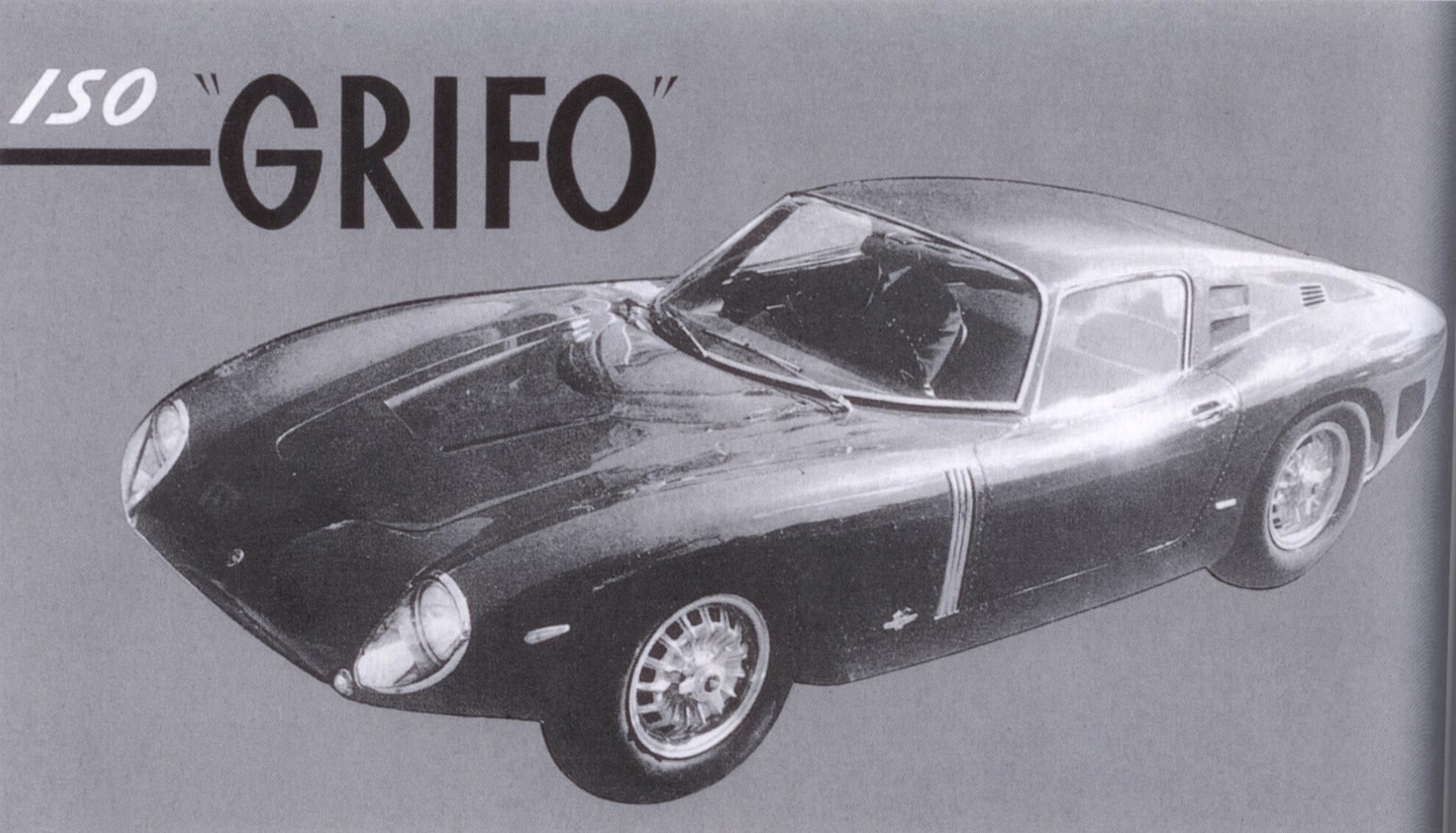
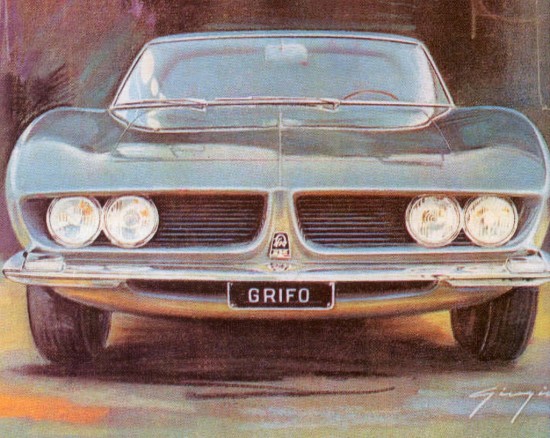
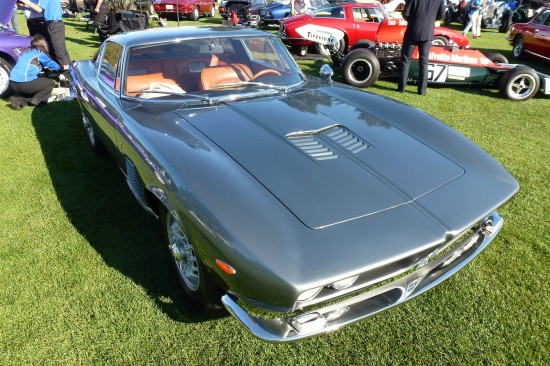
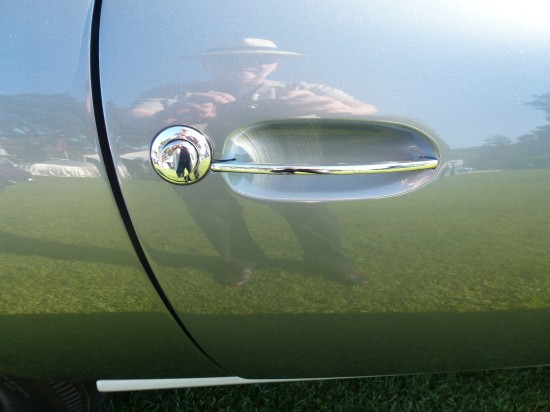
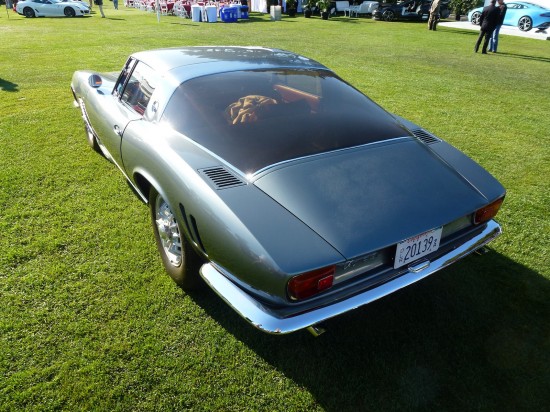
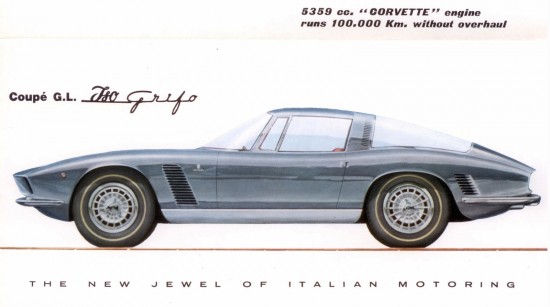
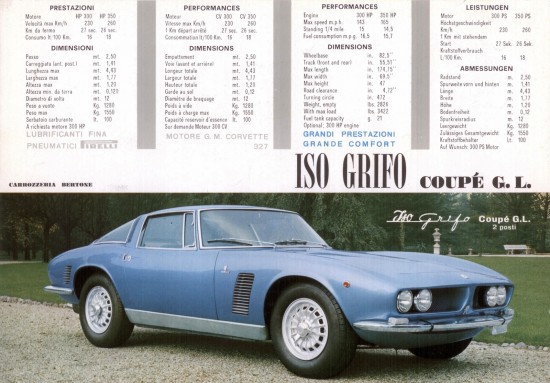
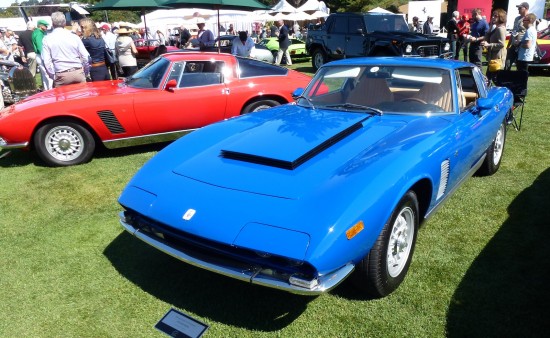
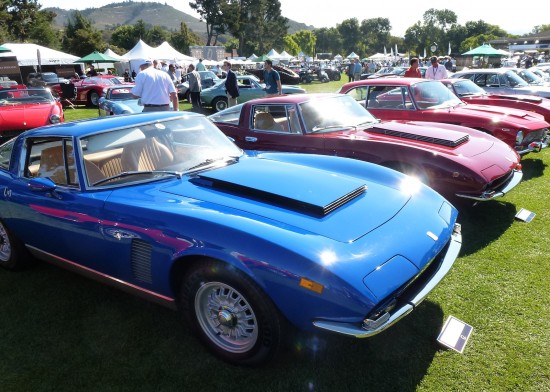
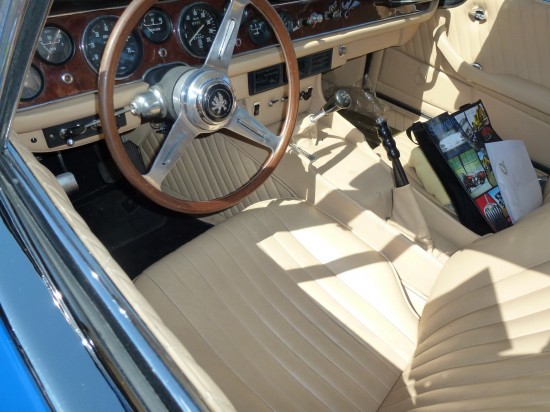
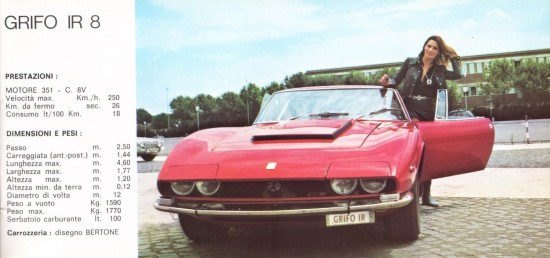
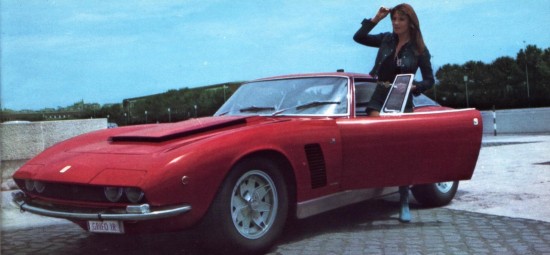
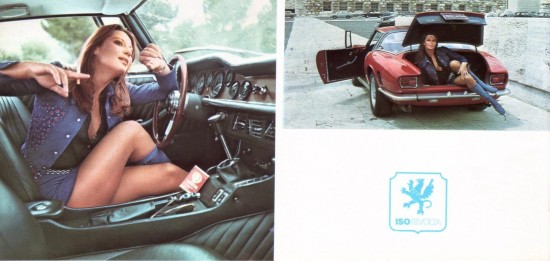
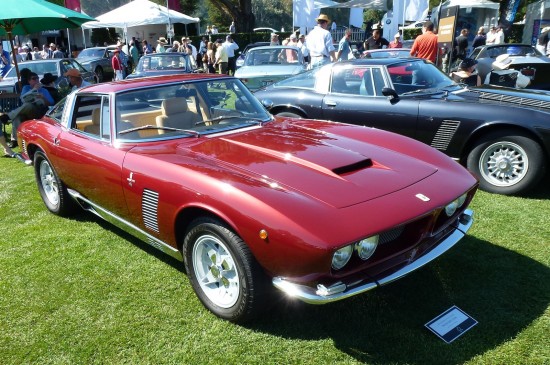
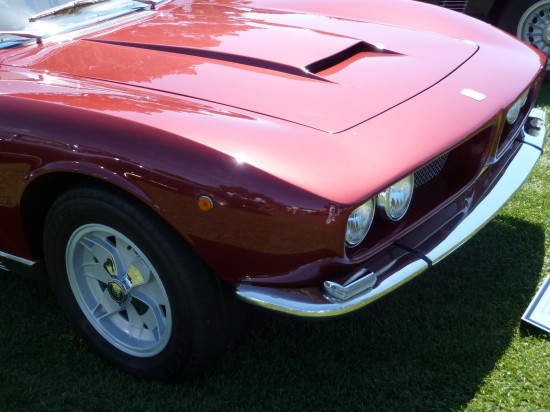
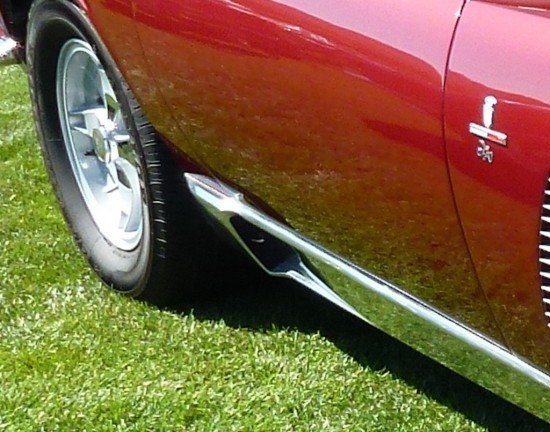
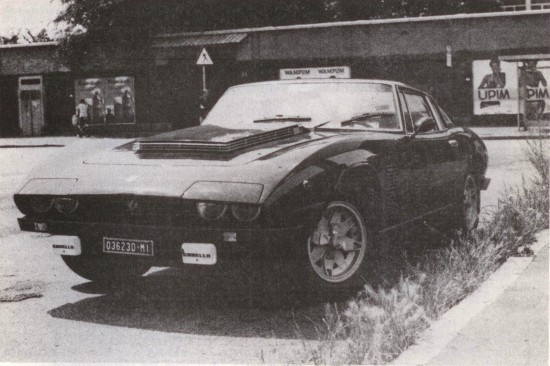




















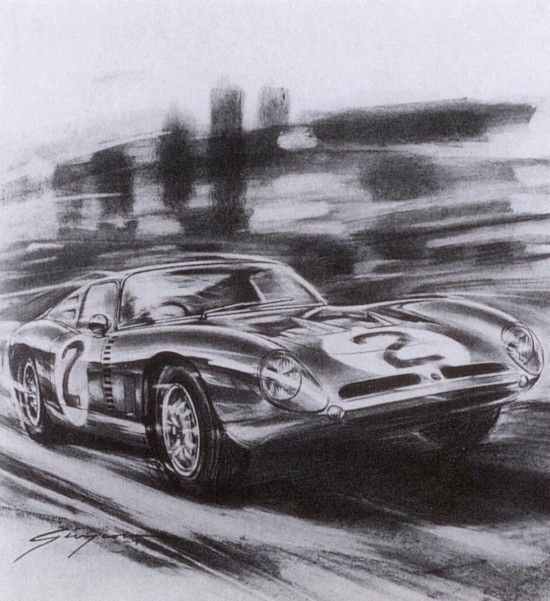
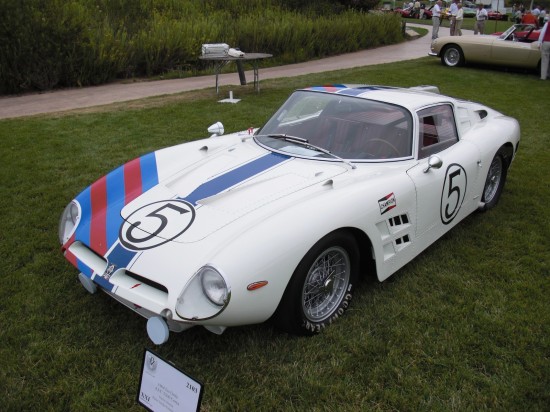
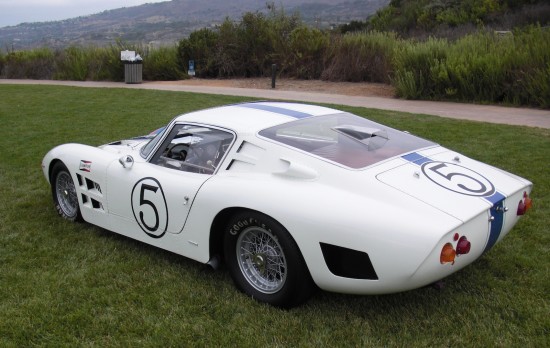
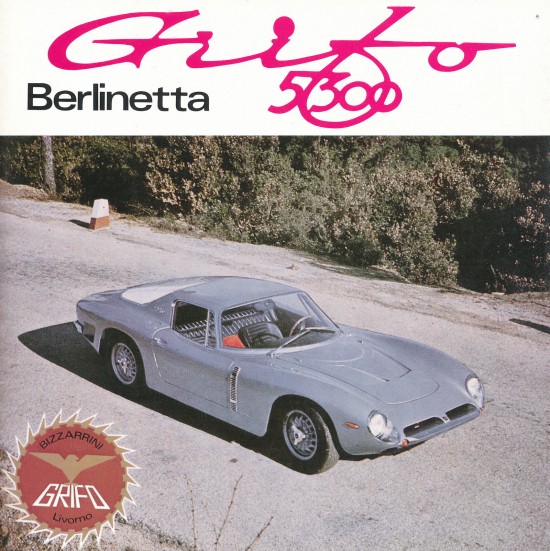
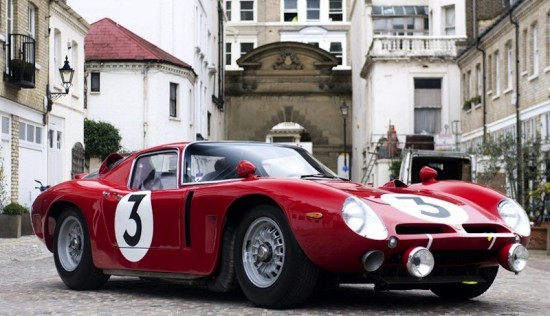
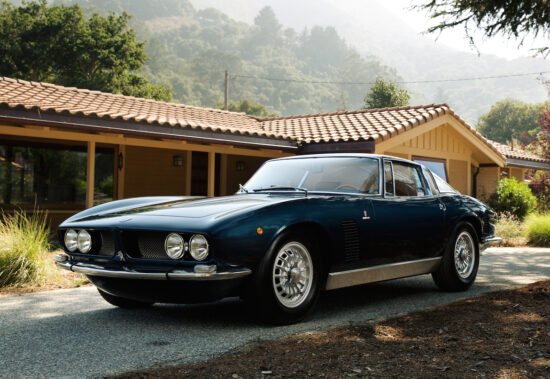
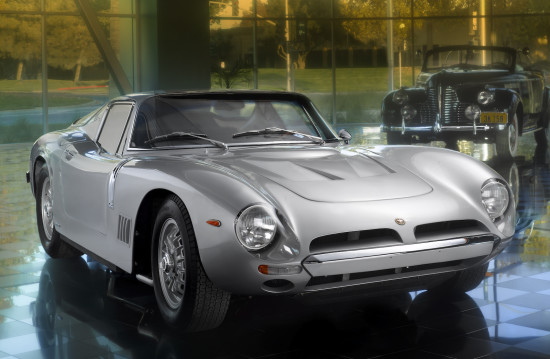
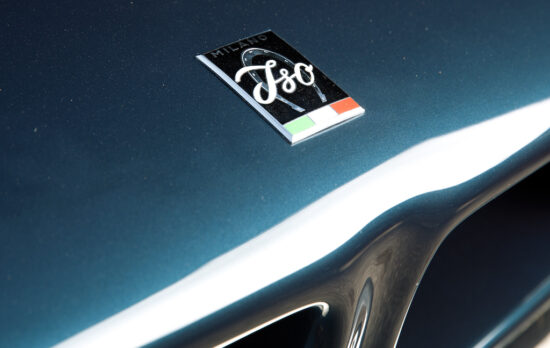
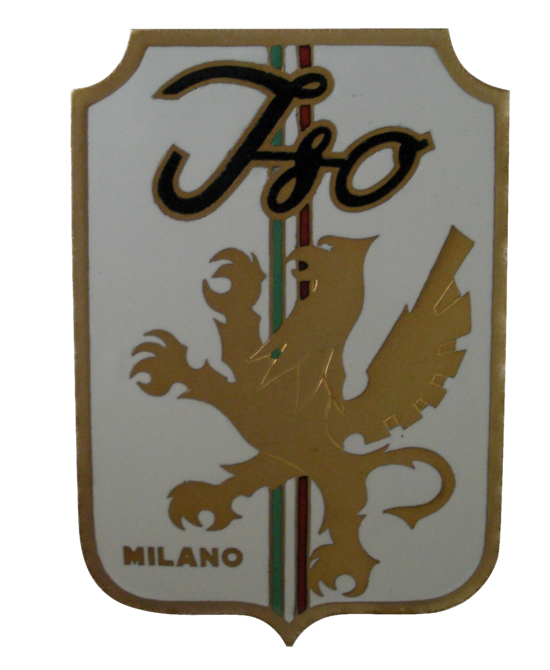
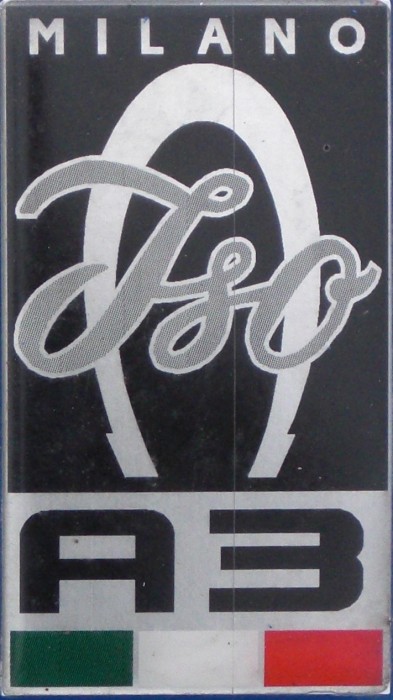
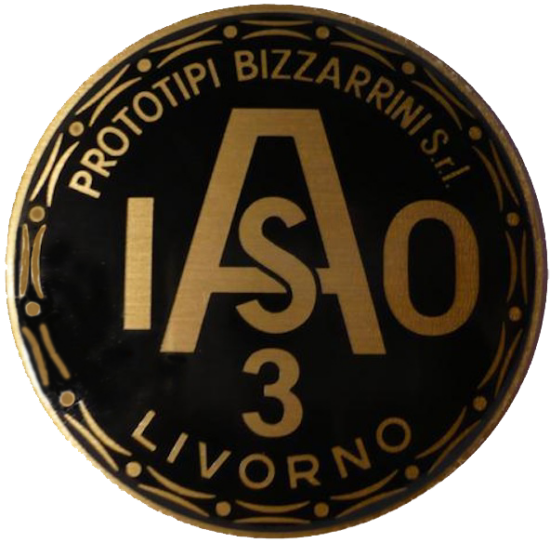



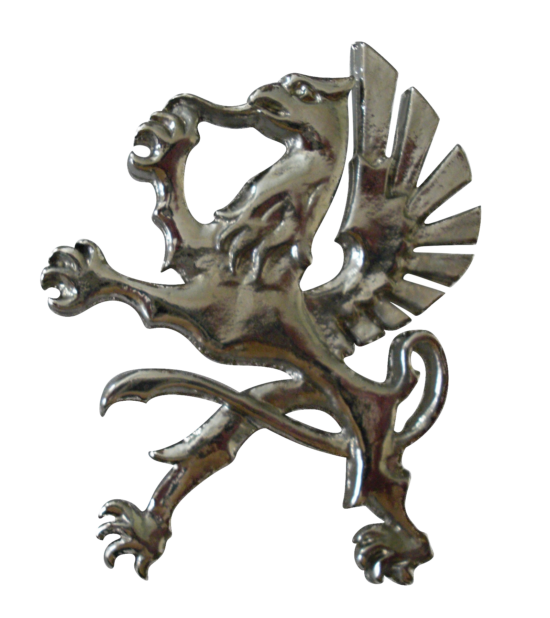
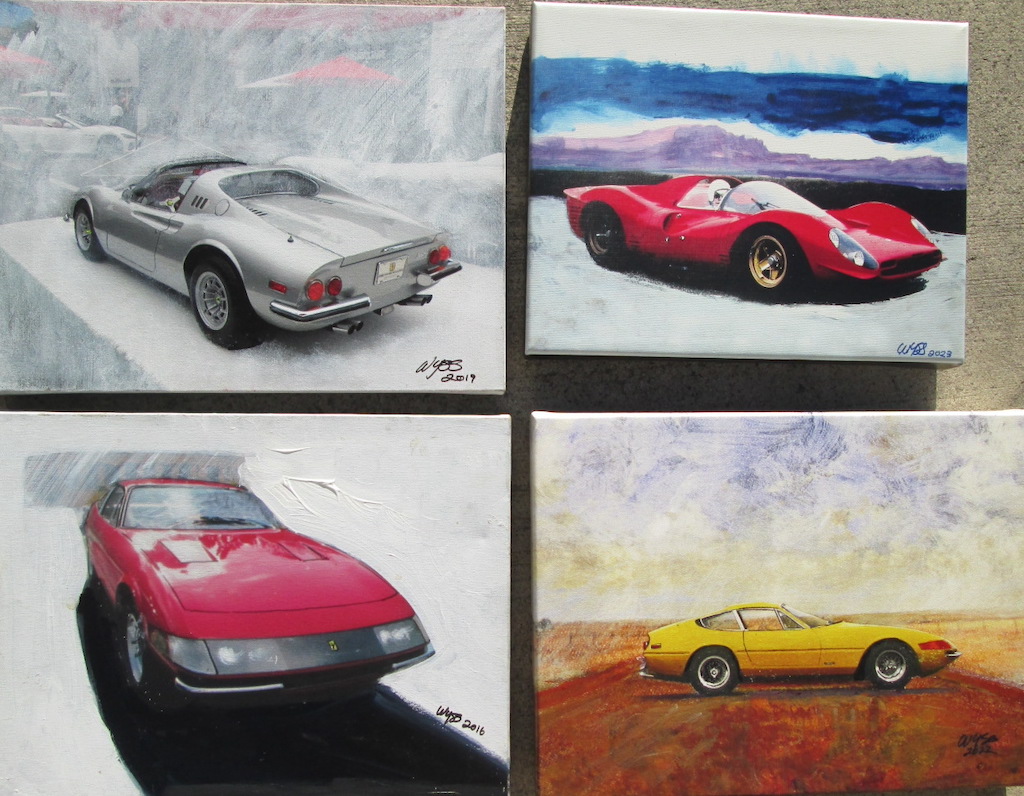

Mike, lovely to see this article with the major variants of the Grifo. After 37 years of ownership I am still captivated, and always sneak a backwards glance when leaving the garage.
Thank you for a wonderful synopsis of the interactions and collaborations of the cadre of creative individuals in that era. Automobile Quarterly (vol 23, no 3) has a similar overview of the drama and relations of the events as they relate to Giotto Bizzarini.
I was fortunate enough to attend an Industrial Design conference at Stanford in ~1983 and Giugiaro was the honored and featured speaker. The courtyard was filled with an array of production cars from his pen. The emcee introduced him by saying “few people can look at any parking lot and see several examples of cars they designed”.
A red Bizzarini GT 5300 was among the cars on display. That car went into my top ten ‘ultimate’ cars (I’d seen photos but in-person it was stunning) and has stayed there ever since. Chatting with the owner he pointed out where a someone had once tried to lean against the rear deck lid, causing the aluminum to bend and the paint to crack. Probably not uncommon.
Triggers fond memories, thank you.
I’m thinking about that third photo in this article. I had a 1984 Firebird and remember that mention was made of “a new manufacturing plant built just to produce the rear window glass”. This was in the 1980s. I wonder if similar issues were dealt with to manufacture that rear window glass for the Iso then. It looks at least as large as the F body GM glass, with the same compound curves.